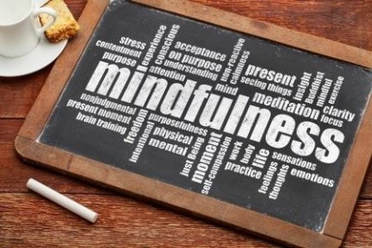Moments of Mindfulness |
At Whaley Thorns, we believe that all children's emotional and mental well-being should be looked after and nurtured. We teach children from the moment they enter our school, that they are in control of how they choose to react to situations. We support them in making better choices and be more in the moment, in the here and now. We help our children to be more in tune with and to appreciate themselves, the world around them and their lives. We believe in helping children to “take a break” from their wandering mind, to focus their attention on the activity at hand and to just “be.”
What is Mindfulness?
The term mindfulness refers to the ability to direct the attention to experience as it unfolds, moment by moment, with open-minded curiosity and acceptance.
(Kabat-Zinn, 1996).
The aim is to develop coping skills used throughout school and beyond which can support children in responding more helpfully rather than simply reacting to what is happening in their lives.
With our busy lives our minds are often very active thinking about all of the things that we need to do or things that have already happened. You could say that our mind is a bit like a snow globe. We might walk through the park on the way to work without seeing the baby ducks on the water, we might walk home from school without noticing the changing of colour of the leaves. We might not notice that we are feeling tired or that we are feeling a bit low. If we could perhaps be more aware of how we feel and what’s going on around us right now we might increase our well-being.
(Kabat-Zinn, 1996).
The aim is to develop coping skills used throughout school and beyond which can support children in responding more helpfully rather than simply reacting to what is happening in their lives.
With our busy lives our minds are often very active thinking about all of the things that we need to do or things that have already happened. You could say that our mind is a bit like a snow globe. We might walk through the park on the way to work without seeing the baby ducks on the water, we might walk home from school without noticing the changing of colour of the leaves. We might not notice that we are feeling tired or that we are feeling a bit low. If we could perhaps be more aware of how we feel and what’s going on around us right now we might increase our well-being.
How Can Mindfulness Help?
|
There is a growing body of evidence which suggests that mindfulness programmes for children can be highly effective in making important changes, including: reducing stress, improving well-being, cultivating empathy and increasing emotional control.
Information on a variety of research studies with adults and children can be found at www.psychologyforchildren.com Mindfulness when well taught and practiced regularly has been shown to improve:
Mental Health |
Information For Parents
Activities to try at HomeThe Body Scan
You will need to find somewhere comfortable to try this out, perhaps put a blanket on the floor, lie on the sofa or your bed. As best you can try to place your attentional focus where requested and explore the sensations with curiosity - what does it actually feel like right now? Each time your mind wanders, gently bring it back. Minds always wander - that's not a failure. Just try to continue to be kind and encouraging to yourself. Try our guided meditation by clicking here
Try focusing on sounds by clicking here
| ||||||||||||



